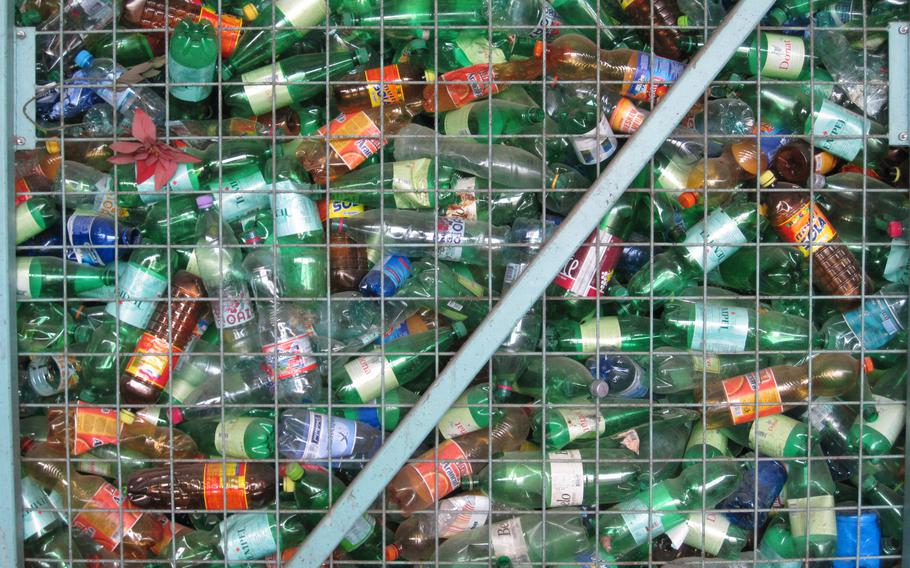
Separated plastic botles in a recycling plant. (Wikimedia Commons)
The Biden administration Friday announced a commitment to phase out single-use plastics across the federal government, marking a significant step in tackling the growing plastic pollution crisis.
As part of an expanded strategy to combat plastic pollution in the United States, the administration set a goal to phase out federal purchases of single-use plastics from food service operations, events and packaging by 2027, and from all federal operations by 2035.
The federal government is the largest buyer of consumer goods in the world and this action could “significantly impact the supply” of these ubiquitous plastic products, according to an 83-page report detailing the administration’s plan. The administration also wants tougher regulations on plastics manufacturers, a source of greenhouse gas emissions. The report highlights that more than 90 percent of plastic is made from fossil fuels.
By leveraging the federal government’s purchasing power, the administration hopes its latest effort will help reduce air pollution, protect public health and shift markets toward more sustainable plastic alternatives.
“Tackling plastic pollution and its associated impacts will require unprecedented action at every stage of the plastic life cycle - from reining in the pollution from petrochemical production … to reorienting infrastructure to ensure dramatic increases in recycling and reuse,” wrote Brenda Mallory, chair of the White House Council on Environmental Quality, and Ali Zaidi, White House National
Climate Adviser, in a letter attached to the report.
The move to reduce plastic use domestically comes as the world is grappling with how to manage the staggering plastic waste problem.
Upward of 460 million metric tons of plastic are produced every year, equivalent to the weight of more than 300,000 blue whales, according to the U.N. Environment Program. Much of the plastic that becomes waste are single-use products that can end up polluting land, waterways and oceans. As the hardy material breaks down in the environment, it creates microplastics - tiny particles smaller than five millimeters that have been found everywhere from Antarctic snow to inside human bodies.
The Biden administration’s new report “so clearly lays out the severity and urgency of this crisis for our oceans, for our climate and for our communities,” said Anja Brandon, associate director of U.S. plastics policy at Ocean Conservancy, a nonprofit group.
“The fact that it calls for comprehensive action throughout the full life cycle of plastics is a new recognition that we can’t solve this crisis without taking upstream action to reduce the amount of plastics we’re making and using in the first place,” Brandon said.
She added that the federal government’s commitment to phase out single-use plastics is a “monumental” step.
“When they throw their weight behind something, we know they can significantly shift the market,” she said.
Biden’s commitments, however, come with a caveat. If former president Donald Trump returns to office following the election in November, it is widely anticipated that his administration would roll back a number of existing environmental and climate rules.
Some environmental advocates emphasized the need for action and implementation following Friday’s announcement.
“While commitments are important, the ‘how’ is essential,” Erin Simon, vice president and head of plastic waste and business at World Wildlife Fund, said in a statement. She noted that the new report “provides the strategic analysis needed to meet these goals.”
“We’re heartened to see this report doesn’t shy away from the negative impacts that plastics have on human health and analyzes the problem through the full life cycle of plastic,” Simon said. “Cleaning up the global plastic mess must start at home. And today under President Biden and Vice President Harris’ leadership, the U.S. government is doing exactly that. The world is watching; now is the time for bold commitments and concrete action on plastic.”
Representatives from oil and petrochemical industries did not immediately respond on Friday to the report.